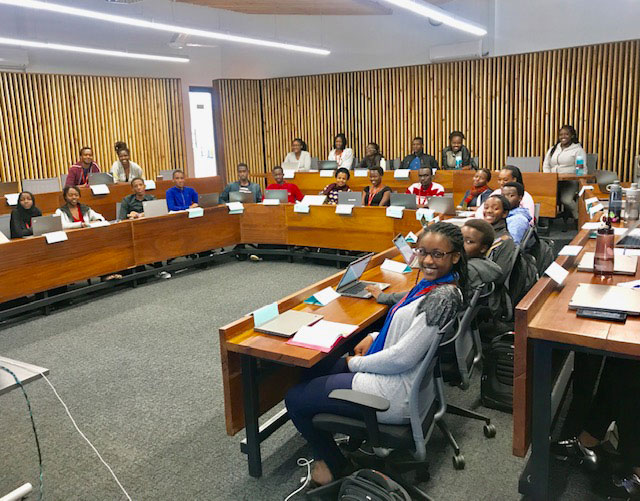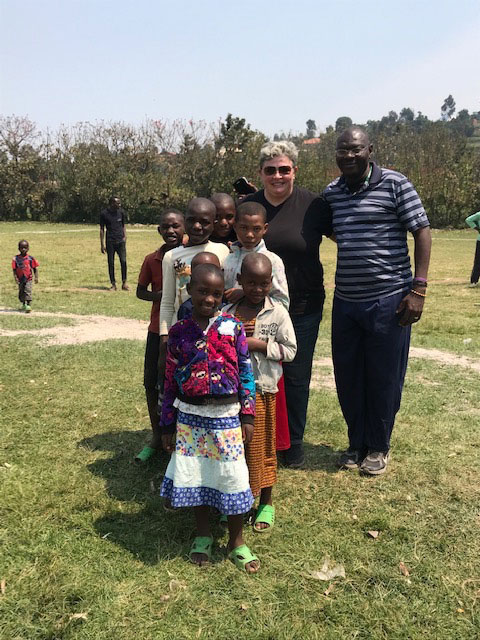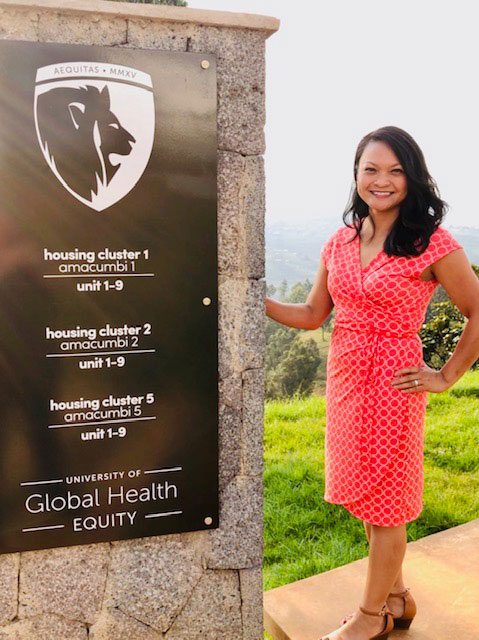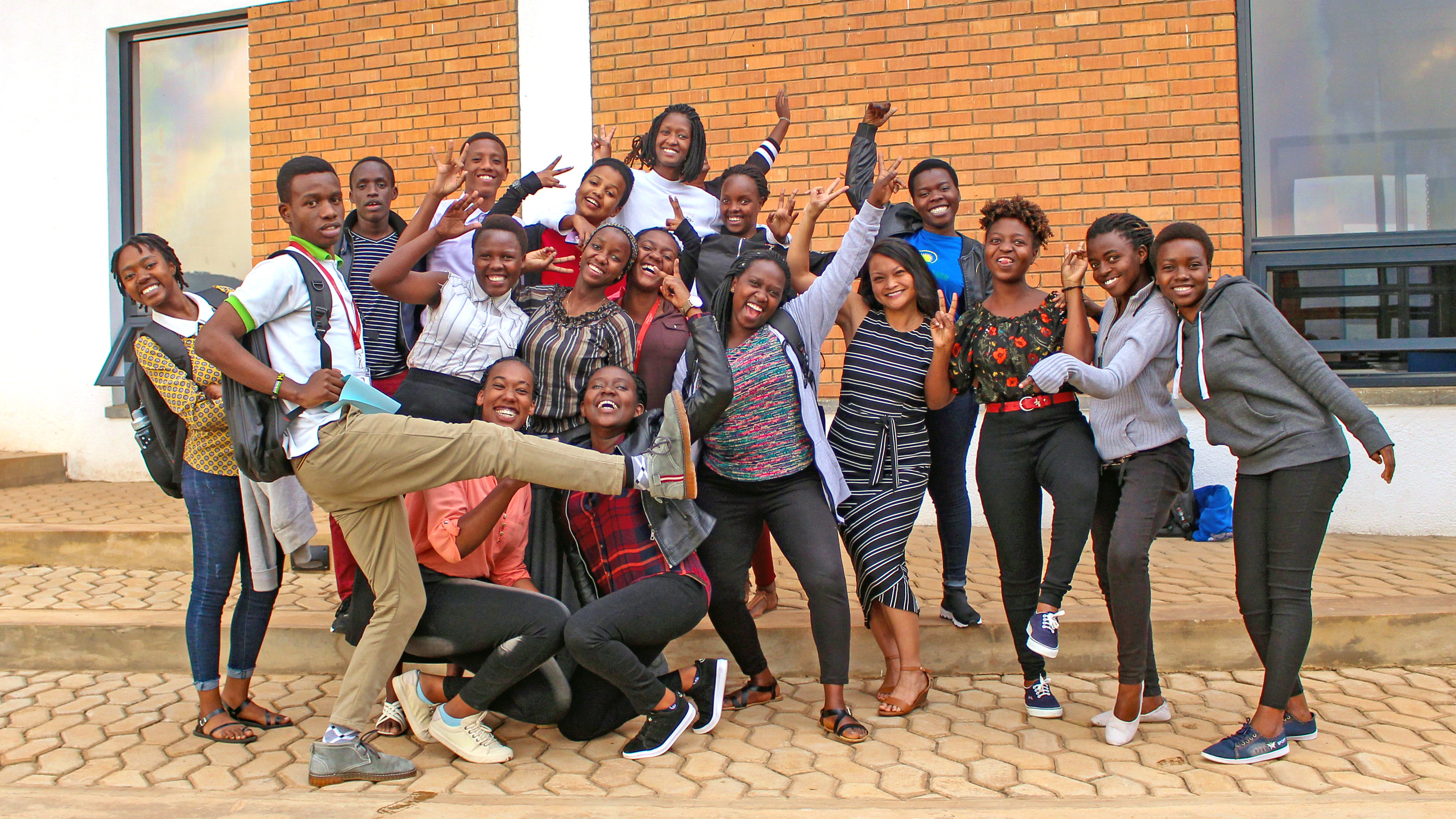Vassar kicked off a unique partnership with a progressive new medical school in Rwanda this summer when members of the faculty and staff taught a pair of three-week courses to 30 students at the UGHE (University of Global Health Equity).
Professor of History Ismail Rashid and Associate Professor of Political Science and Africana Studies Sam Opondo co-taught a course in African history, while Professor of Psychological Science Michele Tugade and LaTasha Smith, a staff therapist in Vassar’s College Counseling Service office, ran a seminar that examined mental health issues.
“I went there to do a job but left with so much more,” Smith said. “The students were curious and engaged, and it was energizing to have such lively discussions with them.”
The summer program marked the start of a collaboration that was forged in the spring when Vassar President Elizabeth Bradley and UGHE Vice Chancellor Agnes Binagwaho, MD, PhD, signed an agreement on the Vassar campus formally establishing the partnership. During the event, Dr. Binagwaho said she and Bradley shared the belief that UGHE’s students would become better doctors if the medical school’s curriculum were grounded in the liberal arts. She said the partnership was formed to enable UGHE to achieve that objective.
Rashid, who has been involved in planning for the alliance since its inception, said he and Opondo presented material based on a course on African history that he teaches at Vassar. He said he enjoyed his first academic encounter with students at UGHE. “While Vassar’s style of interactive teaching was new to many of them, they were genuinely motivated to learn,” he said.

Opondo returned to Rwanda this month to review the students’ work. “[We] explored ways in which they could locate their writing and reflections on health and illness within broader social, economic, and political contexts,” he said. “I had very rewarding conversations with them and learned a lot in the process.”

Tugade said she and Smith developed a curriculum for the course that examined stress and coping skills. She said some of the class discussions focused on Rwanda’s civil war in 1994. The conflict triggered a genocide that killed as many as a million people. “I waited for the students to bring it up,” she said, “and when they did it was something we discussed in great detail. The rebirth of this country is truly inspiring.”
Tugade and her Vassar colleagues also had meaningful experiences outside the classroom, living on the campus and taking part in a Rwandan tradition called “umuganda,” a monthly day of service in the local community. Students, faculty, and administrators helped local residents spruce up a soccer field at a park near the UGHE campus. “It was a joyful experience working with the students and people in the community,” Tugade said. “Living on the campus gave us the chance to get to know the students better—and the food was great.”

As they reflected on Vassar’s first formal interaction with students at UGHE, officials from both institutions said the alliance was off to a great start.
“This partnership has already proven to be a success in the short time since it launched and we are excited to see the impact it will have in the future,” said Professor Abebe Bekele, MD, UGHE’s Deputy Vice Chancellor and Dean of Health Sciences. “We are committed to maintaining a world-class caliber of education for our students, and partnerships such as this will ensure that we continue to bring outstanding faculty to Rwanda to enrich the teaching experience.
“The liberal arts and medical humanities are a key component of the unique and innovative medical education we are providing at UGHE, and the values of our two institutions are in perfect alignment,” Bekele continued. “This partnership will prove to be mutually beneficial, as our students and faculty learn from each other through both educational and cultural exchanges.”
Bradley agreed. “More than 7,000 miles apart, Vassar and UGHE share a firm belief that a background in the liberal arts enables students to develop the capacity to see the larger picture, consider all sides, and develop creative approaches to tough problems,” she said. “What better for medical students than to be exposed to this kind of education? The courses taught by Vassar faculty and staff this summer mark the beginning of a continuing partnership that will truly benefit both institutions.”
